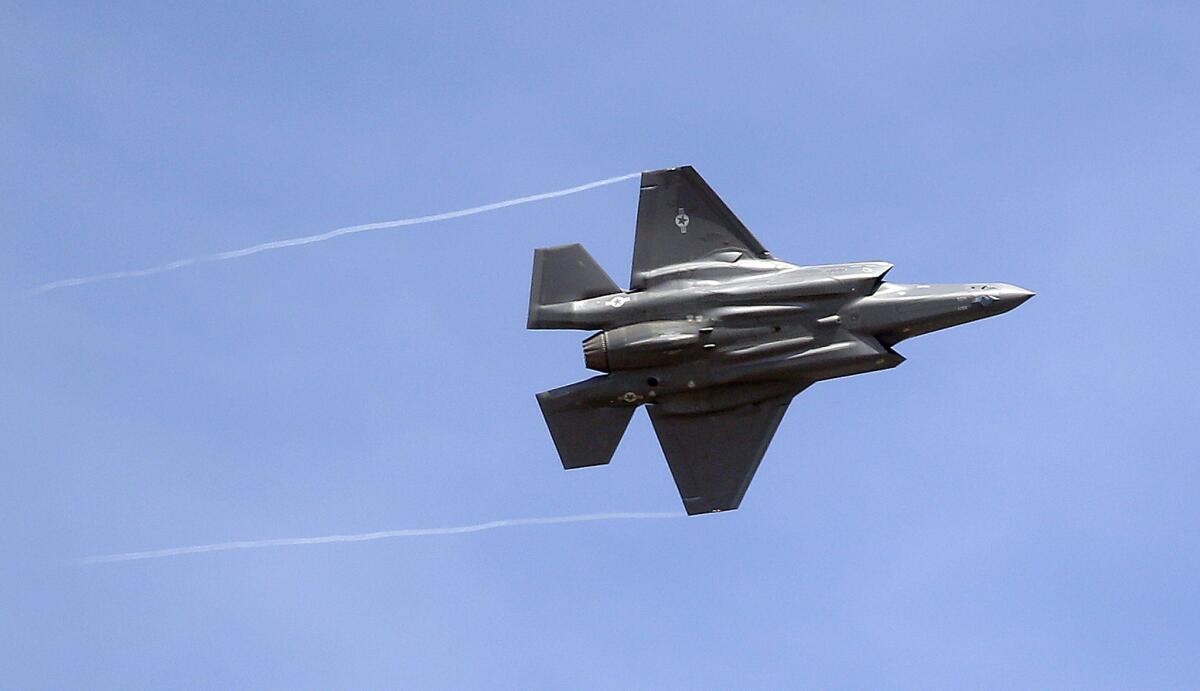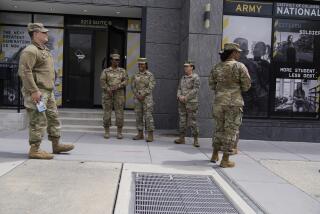Op-Ed: America’s military is built to help defense contractors, not troops

The speaker was civilian, the audience military. Soldiers and marines leaned forward as the speaker described the hazards inherent to moving troops or supplies in developing countries. Those in uniform nodded. Many knew firsthand what happens to an ambushed truck convoy in a clogged Iraqi alley or on a narrow Afghan switchback. Many had lost friends on those alleys and roads. All were looking for solutions. And here it was: hover bikes! Through flashing slides of an artist’s renderings, the civilian confidently boasted that the future of military transport was here.
“Great,” grumbled one soldier after the presentation, “all the enemy has to do is string up a clothesline between two buildings.” “Or just hide up on the second floor with a baseball bat,” added a young Marine, “and hit us in the face as we pass.” “Hey, you guys talking about the hover bikes?” a passing civilian contractor asked. “Cool stuff, huh?”
This scene exemplifies our deeply broken military procurement process. The system pads the pockets of big defense firms at the expense of our troops, delivering boondoggles instead of quality products that save lives.
Before he took office, Donald Trump suggested he would overhaul the procurement process. He said he’d slash the cost of the F-35 and even discussed scaling back the bling on Air Force One. Since taking office, he has reversed himself, promising to lavish the military with whatever it needs. But does the need come from the military or those who arm them?
Without reform, not only will more American tax dollars vanish down the Pentagon’s bottomless well, but more Americans may lose lives and limbs.
Greed and incompetence have always infected the equipment of armies. The term “shoddy” comes from the flimsy, mass-produced shoes that “shod” our troops during the Civil War. When President Eisenhower warned against the military-industrial complex, he foresaw a new age of collusion between politicians, defense contractors and those who wear the stars. It was bad enough during the Cold War, but the dysfunction is even worse now. Consider that of the 63 largest Pentagon programs at the moment, 50 are over budget by $296 billion.
And that’s just money. What about blood?
In the early days of the Iraq and Afghanistan wars, when Americans were being killed by low-tech, jury-rigged improvised explosive devices, the Pentagon was spending billions on air-superiority fighter planes, anti-ballistic missile lasers, and uniforms so cheap they were said to tear like tissue paper in the field.
The military relies on a familiar clutch of defense contractors that face little public scrutiny or competition from outside firms, and so have little incentive to provide cost-effective technologies. Instead, they offer shiny objects. Consider the Future Combat Systems, a fleet of networked vehicles that was supposed to provide greater mobility and communications capabilities. How did it do? The multibillion dollar program was shelved in 2009.
Peeling back the onion of the military’s procurement process reveals a broken yet intricate system that traverses congressional districts and crosses party lines. In his memoirs, former Defense Secretary Robert Gates complained at length about how big money, special interest groups, and politicians looking to create local jobs conspire to keep expensive yet iffy programs (like missile defense) up and running.
Without reform, not only will more American tax dollars vanish down the Pentagon’s bottomless well, but more Americans may lose lives and limbs in tomorrow’s wars.
The first step is to seek more input from the frontlines — the only way to find out what’s really needed. (We could look to Israel as an example; there, the military and the tech sector work hand-in-glove.) The second step is to restore true competition.
Right now, companies outside the so-called Iron Triangle almost never win bids. But if an outside company like, say, Airbus makes a better mousetrap (or Air Force tanker) than an established contractor, like Boeing, then they should be rewarded. Quality matters more than brand.
Reform, however, cannot succeed without greater oversight, and right now no one is minding the store. Yes, there are various agencies and committees, offices and officers, but there is no centralized power tasked with rooting out inefficiencies.
This needs to change, or rather, it needs to change back. A long time ago, when Eisenhower was a general and America was embroiled in World War II, a scrappy, sharp-elbowed senator headed a committee that oversaw all military corruption and waste. This senator took names, made sure that every dollar was well spent, not squandered, and that American weapons only killed America’s enemies. That senator’s name was Harry S. Truman.
What we need today is a new version of the Truman Committee, one given broad authority to truly drain the swamp. Will the military brass resent this kind of disruptive intrusion? Some might, at least those who have cushy consulting jobs lined up with contractors. But the majority of them care deeply about the men and women under their command, and would rather they had something more practical than hoverbikes.
Max Brooks is the author of “World War Z” and a nonresident fellow at West Point’s Modern War Institute. Lionel Beehner is an assistant professor and director of research at the institute.
Follow the Opinion section on Twitter @latimesopinion or Facebook
More to Read
A cure for the common opinion
Get thought-provoking perspectives with our weekly newsletter.
You may occasionally receive promotional content from the Los Angeles Times.






